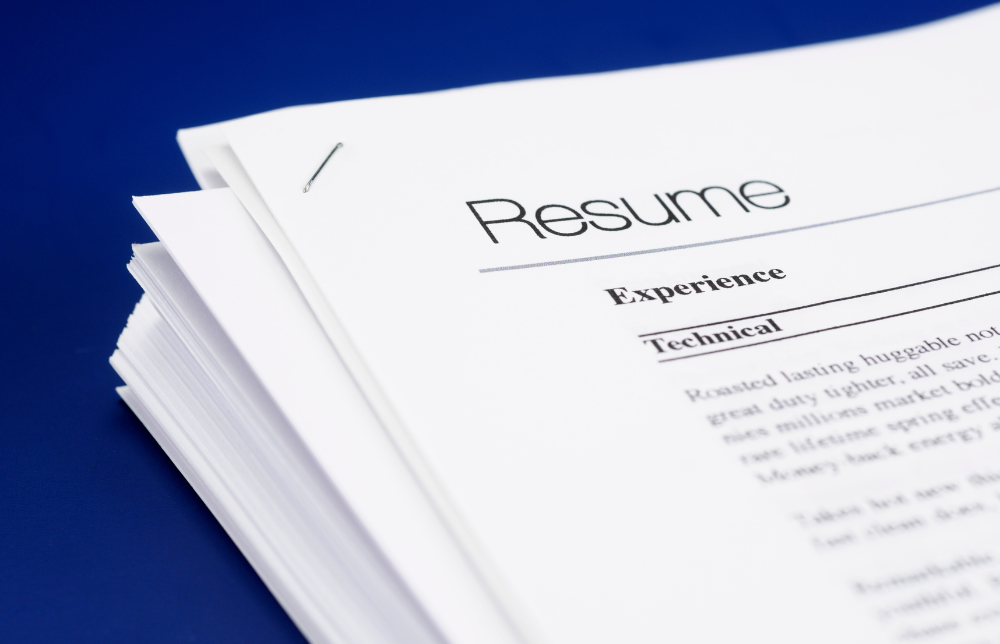5 Tips for Employers for Virtual Job Interviews
Employment figures released by the Australian Bureau of Statistics on April 21 reveal that 780,000 jobs were lost as COVID-19 restrictions ramped up. Around 90% of those jobs were lost ...

Employment figures released by the Australian Bureau of Statistics on April 21 reveal that 780,000 jobs were lost as COVID-19 restrictions ramped up. Around 90% of those jobs were lost in the first week of April, after tougher COVID-19 restrictions were introduced on March 30.[1] June quarter unemployment figures are expected to jump from 5.1% to 10.0%.
In New Zealand, the figures are just as grim. The official unemployment rate prior to the pandemic arriving in New Zealand was 4.0%. Treasury modelling predicts this could peak at 8.5% in the June quarter of this year, then fall back to 5.5%.[2] One report, released on April 21, predicts 250,000 jobs will be lost over the next year, with tourism-related sectors set to be the hardest hit.
With grim news like that, it might seem that very few employers are recruiting at this time. However, certain industries and employers have weathered the storm well – and in some cases have actually increased hiring.
IBISWorld[3] identified 5 Australian industries that are expected to outperform both during and in the immediate aftermath of COVID-19:
- Data storage services
- Online food ordering and delivery platforms
- Childcare services
- Electronics retailing
- Hardware and building supplies retailing
In New Zealand, 4 industries were identified[4]:
- Data processing and web hosting
- Courier services
- Online shopping
- Health insurance
Employers in other sectors may find themselves still having to fill critical roles in order to keep business operations ticking over. Given current circumstances, it’s likely that many employers are turning to recruitment technology with video capabilities to interview candidates. Indeed, one poll of 344 HR leaders on April 13 found that 86% of organisations are incorporating this technology due to the COVID-19 pandemic.[5]
Here are 5 considerations to help employers make the most of virtual recruitment:
- Re-set expectations
Candidates should be provided with an outline of the steps required with a virtual recruitment process, who will be involved, and a realistic timeline. As this is likely a new process for both candidate and employer, be upfront about how long the process will take, keeping in mind that each step may take a little longer than a traditional hiring process.
- Send the details of the virtual interview via email
Send each candidate an invitation for the virtual interview, including the time and date of the interview, and all the information required to access the software you’ll use for the interview. Be very clear about the format of the virtual video interview, so candidates know what is expected of them. For example, if the candidate will need an access code to log in to the interview, list this information in a prominent place in the email. Include how long you anticipate the interview lasting and add any additional documentation or information you want the candidate to have on hand during the interview.
- Be a little more forgiving
Let’s be honest: things can go wrong during video interviewing. From internet dropouts to unexpected interruptions, these interviews can be clumsy and awkward, especially if one participant is unfamiliar with tools like Zoom. Some of this can be rectified by taking a few moments at the start of the interview to ask the candidate if they can hear and see the interviewer, whether they are having any technical problems, etc. It’s also the time to suggest trying a better location if it’s noisy or not conducive to a meaningful conversation, or if the candidate is sitting too far from the screen. This is also the time to ensure participants have a backup plan – mobile numbers, email addresses, etc. – in case there’s a technical meltdown.
This pre-interview stage is important as it can serve as a “buffer” for the interviewee – a time to catch their breath and prepare themselves for the interview. They would normally have the commute time to do this; things are different when they’ve literally strolled from their lounge room to the bedroom to do the interview.
- Set the questions for a new era
While it’s always important to ask the right questions during an interview, this is even more critical during these unusual times – any organisation making a commitment to recruit right now needs to be sure they are getting the right person onboard. Be upfront about the work environment the candidate would be entering and think about the values, behaviours and competencies that will be required to succeed. For example:
- In a remote working world, where face-to-face interactions will not occur for at least a little while, being able to pick things up quickly with minimal instruction will be important. A competency-based question around someone’s learning ability can help uncover this. e.g. “What was the hardest task you had to learn in your current role and how did you go about doing it?” That gives a good insight into someone’s initiative.
- Many businesses are coping as best they can in an ambiguous, challenging environment. Ask the candidate if they can provide an example of where they’ve had to handle a tricky situation where objectives or process steps were unclear, or where outside the box thinking was required to get a task done.
- Motivation is also challenging in this environment. Ask what inspires or drives the candidate and whether this is going to be a challenge in a remote working environment where managers and peers cannot offer feedback or recognition in the same ways as before.
- Ask candidates to get creative
It’s hard to get a genuine sense of someone’s personality in a rigid Q&A style interview, especially when that interview is being conducted via video screen where the nuances of face-to-face interactions are easily missed. As part of the virtual recruitment process, some employers are asking candidates to “bottle their personality” and asking them to create short (15-30 second) videos. It’s a fun way for candidates to show their personality, their interests or hobbies, their humour, and even their presentation and communication skills. However, make this optional; it shouldn’t be a deal-breaker if the candidate declines to take part in this step.
The way forward?
Despite the perception that virtual job interviews are somehow less formal, it’s important to remember that the fundamentals of a successful virtual interview are the same as a traditional interview. That includes things like dressing professionally, asking pre-prepared questions, allowing candidates time to respond, and providing an outline of next steps to candidates.
Who knows? Thanks to technology enhancements and the acknowledged efficiencies of virtual interviewing, it may become the new standard for recruiters and HR professionals – and candidates – long after social distancing guidelines are lifted.
Related Articles:
A Guide to Onboarding Remote Employees in Australia
Guide to an Effective Recruitment Process
ELMO Cloud HR & Payroll can help HR professionals manage their workforce, even while operating remotely. As a cloud-based solution, ELMO helps employers manage their teams from anywhere at any time from a secure, centralised location. All employee-employer touchpoints are covered by ELMO’s suite, from ‘hire to retire’. This includes recruitment, onboarding, learning and development, performance management, payroll, rostering / time & attendance, and more. Our latest module is ELMO Connect, which offers instant messaging functionality and integration with Zoom video conferencing. To discover how ELMO Connect can assist your organisation, or for further information on any ELMO solution, contact us.
[1] “COVID-19 cost more than 700,000 Australians their jobs in just a week”, ABC, 21 April, 2020
[2] “NZ modelling shows dire cost of COVID-19”, The Australian, April 14, 2020
[3] Five Industries Set to Outperform Due to COVID-19
[4] Four Industries in New Zealand Set to Outperform Due to COVID-19
[5] Gartner HR Survey Shows 86% of Organizations Are Conducting Virtual Interviews to Hire Candidates During Coronavirus Pandemic
 HR Core
HR Core 









